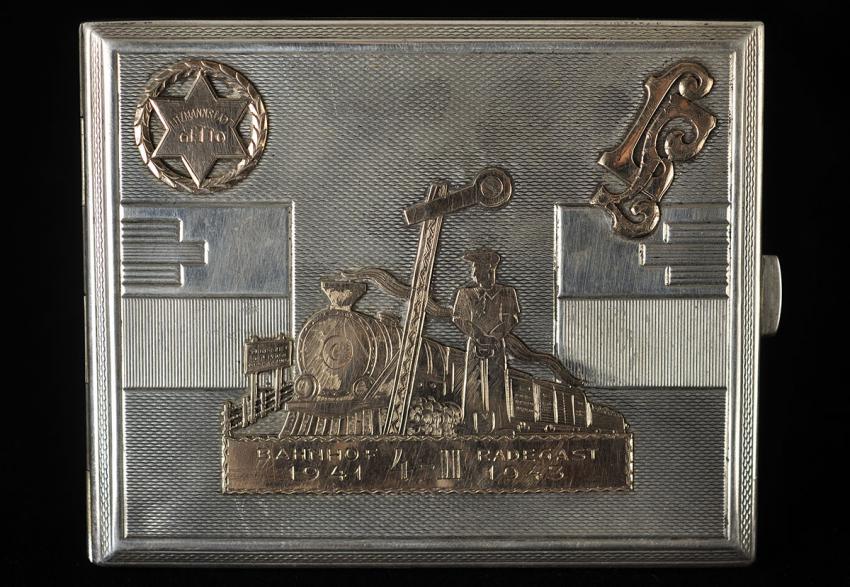
Yad Vashem Artifacts Collection
Courtesy of Dvora (Lederman) Atzmon and Daniel Lederman

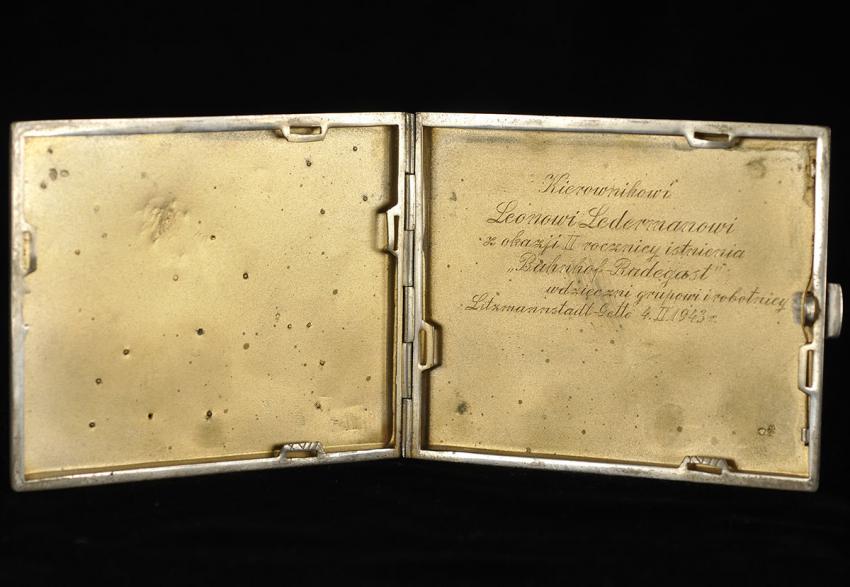
Yad Vashem Artifacts Collection
Courtesy of Dvora (Lederman) Atzmon and Daniel Lederman

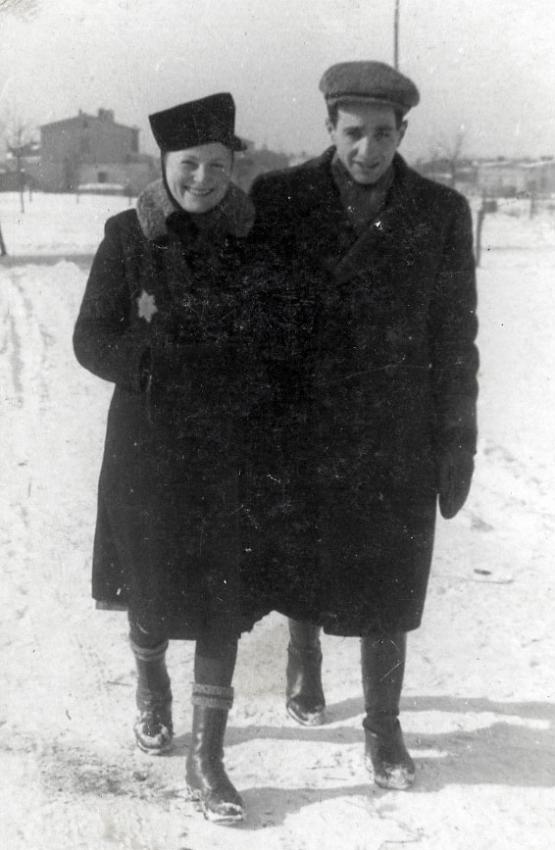

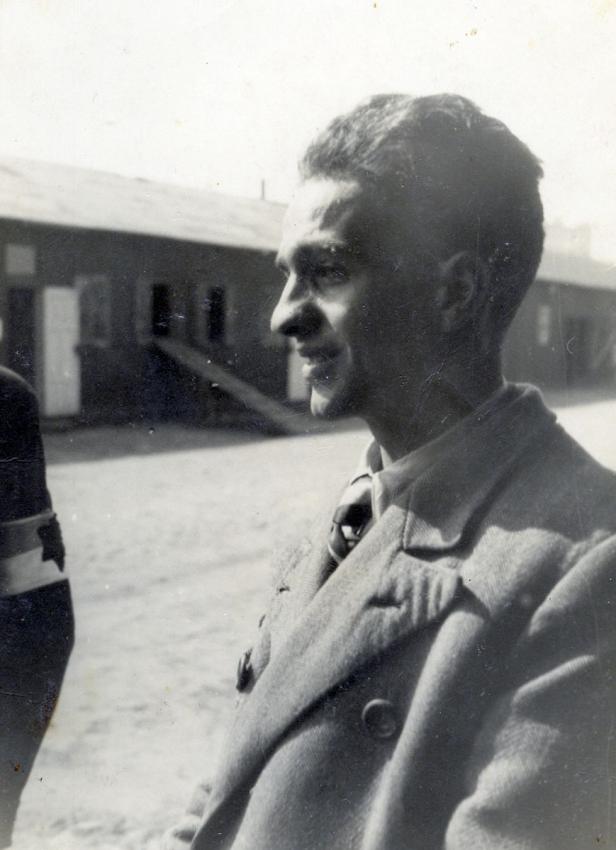

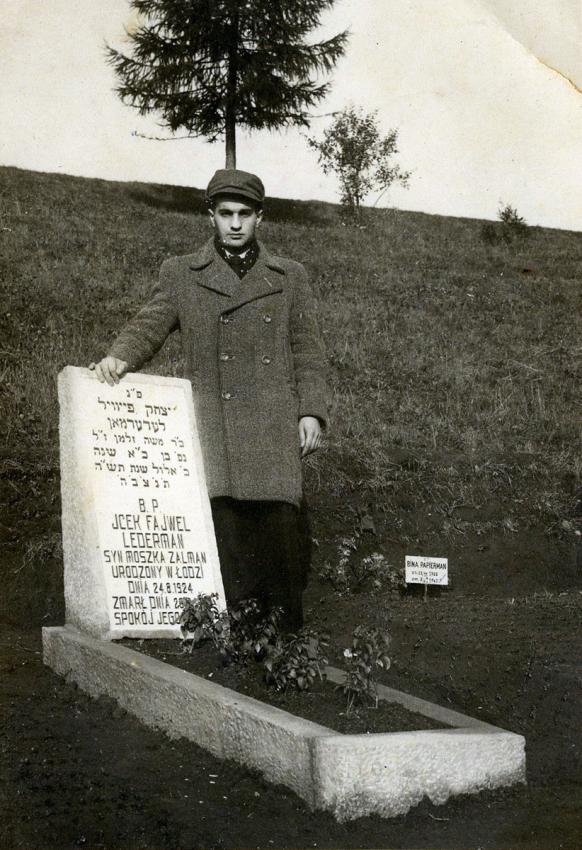

Sunday to Thursday: 09:00-17:00
Fridays and Holiday eves: 09:00-14:00
Yad Vashem is closed on Saturdays and all Jewish Holidays.
Entrance to the Holocaust History Museum is not permitted for children under the age of 10. Babies in strollers or carriers will not be permitted to enter.

Yad Vashem Artifacts Collection
Courtesy of Dvora (Lederman) Atzmon and Daniel Lederman


Yad Vashem Artifacts Collection
Courtesy of Dvora (Lederman) Atzmon and Daniel Lederman







This cigarette box, adorned with an impressive engraving of a locomotive at a station in the Lodz ghetto, was given to Yad Vashem’s Artifacts Collection in 2012. The depiction, and the dedicatory inscription within, give a few clues regarding the identity of the person who received the box: Leon Lederman, who served in an administrative capacity in the ghetto.
To Leon Lederman
On the second year
"Radegast Station"
With gratitude,
Labor and Management
Litzmannstadt [Lodz] ghetto, February 4, 1943
Mike Lewkowicz, who donated the cigarette box, did not know who Leon Lederman was, nor how the box had come into the possession of his father, Israel, a Holocaust survivor originally from Lodz. Lewkowicz’s attempts to locate Lederman’s relatives came to naught, and he donated the box to Yad Vashem in the hope of finding them.
Research conducted by staff in the Artifacts Department revealed nothing about Leon Lederman. It was only when they reached out to survivors from Lodz that they ultimately made contact with Dvora Atzmon, Lederman’s daughter. When Atzmon heard about the cigarette box, she hurried to Yad Vashem for a moving encounter with the artifact that her father had received as a gift from his employees some 70 years earlier.
Atzmon recounted that her father, a native of Lodz born in 1916, had been imprisoned in the ghetto in 1940 with his entire extended family. Leon and his brother Abraham helped manage the transfer of supplies to and from the ghetto, and both brothers got married while incarcerated in the ghetto: Leon to Dina, and Abraham to Helen. Abraham would covertly listen to the radio and spread information to the inhabitants as part of underground activity in the ghetto. “If you gave people good news, that was resistance,” he later testified.
Until 1944, the entire Lederman family managed to survive, apparently due to Leon and Abraham’s positions in the ghetto. However, Leon’s parents, sister and older brother were deported on the last transport from the ghetto and murdered. Leon, Abraham and another brother Icek were among 800 people left behind to liquidate the ghetto.
Sadly, Icek died shortly after the ghetto was liberated. After the war, Abraham and Leon fled the Antisemitism in Poland with their wives, making their way to the DP camps in Germany. Helen and Abraham later immigrated to the US, while Leon and Dina set sail from Italy for Eretz Israel. After incarceration by the British in DP camps in Cyprus, the couple finally made it to Israel, settling in Holon.
For the rest of his life, Leon Lederman felt guilty for being unable to save his parents. He did, however, manage to rescue one person: Menachem Mendel Heitler, his brother-in-law. Heitler survived, and kept a note of historical importance from the period of the ghetto. By prior agreement with Rachel Boehm, his friend from a Zionist youth group in Lodz, she hid a note in the train car with information about the destination to where she and the thousands of others were being deported — Auschwitz.
The ornamented cigarette box is one of a variety of artifacts from the Lodz ghetto preserved at Yad Vashem. The engraved illustration depicts aspects of life in the ghetto. In the first years of the ghetto’s existence, for example, the Radegast station depicted on Lederman’s cigarette box served as a supply station and was later converted into a station for deporting Jews for extermination. The depiction on the box, together with the story of the fate of Leon Lederman, manager of the Radegast train station, constitute unique historical evidence of wartime events in the Lodz ghetto.
Yad Vashem Artifacts Collection,
Courtesy of Dvora (Lederman) Atzmon and Daniel Lederman

Thank you for registering to receive information from Yad Vashem.
You will receive periodic updates regarding recent events, publications and new initiatives.

"The work of Yad Vashem is critical and necessary to remind the world of the consequences of hate"
Paul Daly
#GivingTuesday
Donate to Educate Against Hate


Worldwide antisemitism is on the rise.
At Yad Vashem, we strive to make the world a better place by combating antisemitism through teacher training, international lectures and workshops and online courses.
We need you to partner with us in this vital mission to #EducateAgainstHate
The good news:
The Yad Vashem website had recently undergone a major upgrade!
The less good news:
The page you are looking for has apparently been moved.
We are therefore redirecting you to what we hope will be a useful landing page.
For any questions/clarifications/problems, please contact: webmaster@yadvashem.org.il
Press the X button to continue



